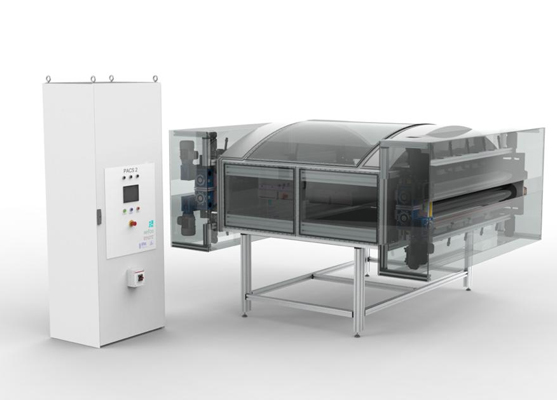Research collaboration to reduce environmental impact of textile dyeing
IMCRC activate funding helps advance atmospheric plasma coating technology to establish environmentally friendly alternative to conventional textile dyeing processes
Dyeing is one of the most polluting and energy intensive processes in textile manufacturing. Australian textile technology expert Xefco and Deakin University’s Institute for Frontier Materials (IFM) have embarked on a new $700,000 manufacturing research project, co-funded by the Innovative Manufacturing Cooperative Research Centre (IMCRC), to develop new atmospheric plasma techniques to improve conventional textile dyeing processes, both in terms of energy efficiencies and eco-friendliness.
Utilising Xefco’s proprietary XSP™ technology – a new atmospheric plasma system that is being developed in collaboration with Deakin’s IFM, Proficiency Contracting and IMCRC in parallel – the 12-month project aims to create a new, less water-dependent dyeing approach by applying atmospheric plasma coatings.
Dr Frank Chen, who leads the research at Deakin’s IFM, along with Associate Professors Dr. Weiwei Lei and Dr. Alessandra Sutti, believes that it is possible to achieve significant energy efficiencies and sustainability benefits when using advanced plasma technology.
“The XSP™ technology we have been developing together with Xefco can be used to apply functional coatings to textiles and other materials via a patented process of plasma enhanced chemical vapour deposition (PECVD) in atmospheric conditions. This process can be extended and produce a range of highly durable treatments including colour, using less water, and dyeing agents,” says Associate Professor Dr. Weiwei Lei.

